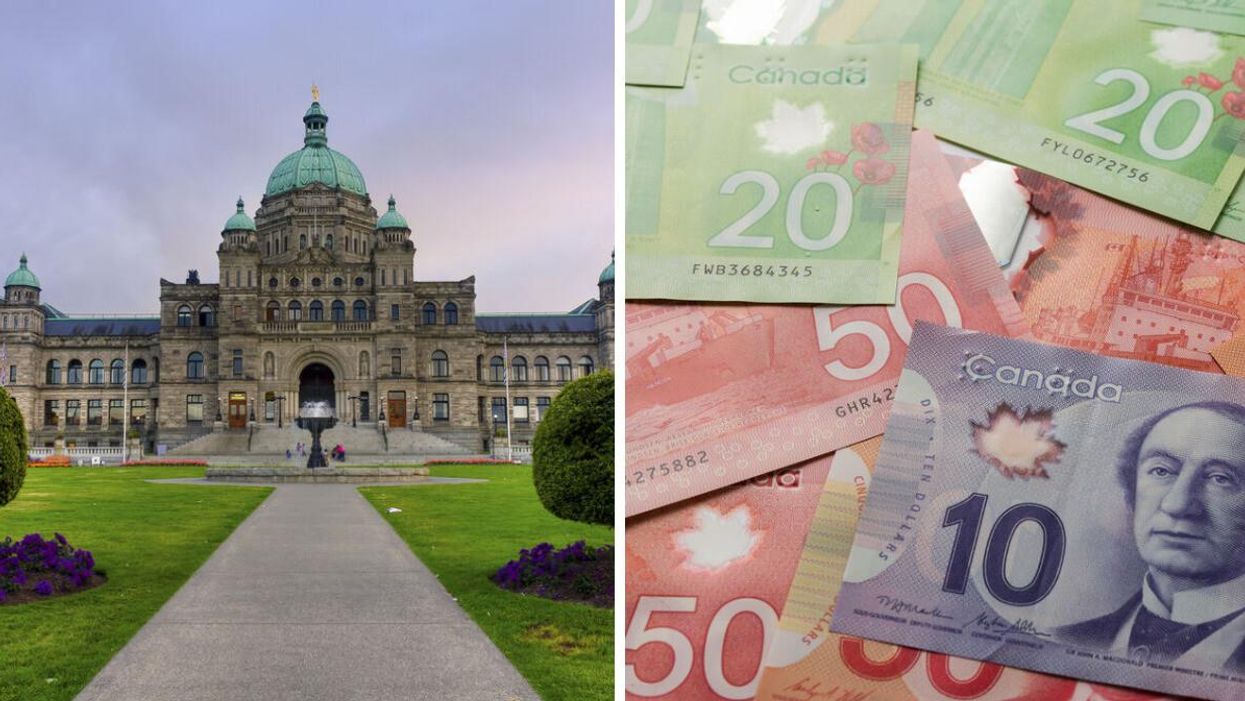Some BC Residents Just Got Money From The Government & Here's Who Is Eligible
You might want to check your bank balance. 💰

B.C. Legislative Building. Right: Canadian money.
B.C. residents might have noticed they have a slightly healthier bank balance this month after receiving a boost on one tax credit.
The B.C. government has paid out the "enhanced" Climate Action Tax Credit to low-and moderate-income people in the province to help people deal with rising costs.
The BC Climate Action Tax Credit helps offset carbon taxes paid by those living in the province and comes in the form of non-taxable credit payments.
The payments are issued four times a year in July, October, January and April and they're usually received around the fifth day of the month, according to the B.C. Government.
In the latest payment received in October, an additional $164 per adult and an additional $41 per child were included.
This means from the period between July 2022 and April 2023, some B.C. residents will receive up to $357.50 for individuals, their common-law partner, spouse, or the first child in a single-parent family.
They will also receive up to $97.50 each for all other children.
Anyone eligible for the enhanced tax credit should have received the money in a payment from the Canada Revenue Agency if they completed their 2021 income tax return.
In a statement, Selina Robinson, minister of finance said life is more expensive for people right now as some are experiencing the "weight of inflation on their household budgets."
“This enhanced payment is one of the best ways we can get money into the pockets of people who need it most, right now, so they have some extra help with the increased costs of essential items like groceries or gas," she explained.
According to the government, the payment will benefit around 85% people in B.C.
In B.C., how much you receive as part of the tax credit is determined based on the size of your family and your family net income.
You also need to meet at least one of the following requirements: be 19 years of age or older, have a spouse or common-law partner, or be a parent who resides with your child.